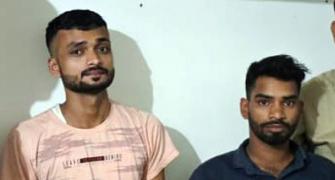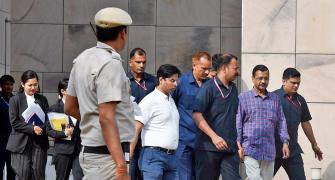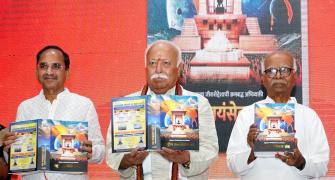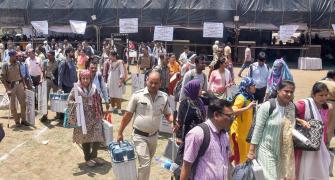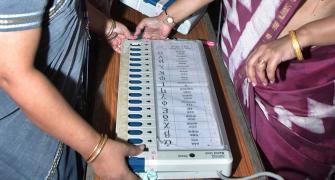Sabeel Ahmed, one of the accused in the botched London and Glasgow car bomb cases, has admitted to charges of withholding information that could have prevented an act of terrorism.
The 26-year-old doctor from Bangalore admitted at the Old Bailey court house on Friday that he had failed to inform the police regarding the terrorist attack that would have been of 'considerable assistance'.
Sabeel's brother Kafeel Ahmed, who according to police smashed a car containing gas cylinders and detonators into the Glasgow airport, had died in a hospital of the severe burn injuries sustained in the failed bombing in June last year.
Sabeel was among those arrested in connection with the botched terror attack.
The Indian doctor was arrested near Liverpool's Lime Street station on June 30 last year and later charged under the Terrorism Act.
Sabeel, who was living in Liverpool at the time of attack, was the third person charged over the failed bombing. Two other men, accused of conspiracy to cause explosions, face trial later this year.
On June 29 last year, two cars containing petrol, gas cylinders and mobile phone detonators were discovered in Central London. The next day the burning Jeep Cherokee was driven into the main terminal building at Glasgow Airport.
Jonathan Laidlaw, for the prosecution, told the court that the airport attack was intended to be a suicide mission after the earlier attacks had failed.
He said: "One assumes that the nature of the attack in terms of what was planned had changed because of the failed attempts in London. They appeared now to have been working on the basis they were likely to be arrested and the attack to be conducted at Glasgow was to be a suicide attack likely to result in the loss of both their lives."
Laidlaw said: "When outside the terminal, Kafeel Ahmed, who was driving the Jeep, turned the vehicle sharply and crashed it into the pillars to the right hand side of one of the entrance doors.
"He then, having found himself from his perspective out of position, reversed the Jeep and made the first of a number of attempts to drive the vehicle through the airport door, repeatedly hitting pillars and the door frame. Despite his efforts, the vehicle became trapped. Those who witnessed him described a set and determined face as he stared forward.
"At that point the vehicle was just 20 feet from passengers queuing within the terminal building. His passenger lowered his window and threw a petrol bomb across the bonnet in the direction of the taxi rank and then threw a second of these devices in the opposite direction," he said.
At the same time, Laidlaw said, "the driver, the defendant's brother, began to pour and splash fuel from a can on to the area outside the car window and appeared to throw a petrol bomb.
"He got out of the vehicle and was engulfed in flames that swept around the Jeep and terminal building. He appeared to try and prevent others from getting to him or the vehicle. He kicked out but eventually, he being on fire, he was extinguished, subdued, handcuffed and arrested."
The attack caused panic within the terminal and a number of people suffered minor injuries in the 'crushing' that followed.
The court heard that Kafeel Ahmed had sent his brother a text message directing him to an online email account containing several documents. Laidlaw said these included instructions to Sabeel on how to frustrate the police and his brother's Islamic will.
When police searched the doctor's Liverpool home, they found his brother's laptop computer which contained evidence that Sabeel had accessed the files.
Laidlaw said: "Later on June 30, after the attack in Glasgow, he came into possession of significant information about the attack and those responsible for it. Thereafter he failed to make the required, or any, disclosure and he had, as his plea of guilty now demonstrates, no reasonable excuse for that failing.
"The significant information falls into a number of different categories -- principally it relates to the identities of those likely to be involved in the bombing.
"At that time, when he was passed the information, the defendant could not have known, of course, conclusively whether all those involved had been detained by the authorities or whether they were free to continue with their terrorist activity," Laidlaw said.
He said the information he held would have been of 'considerable assistance' to police as they hunted the culprits behind the attack.

